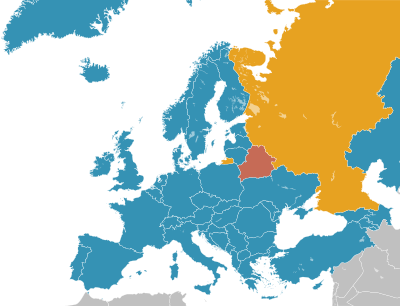
Back عقوبة الإعدام في فرنسا Arabic Pena de mort a França Catalan Trest smrti ve Francii Czech Todesstrafe in Frankreich German Kuolemanrangaistus Ranskassa Finnish Peine de mort en France French Pena di morte in Francia Italian フランスにおける死刑 Japanese വധശിക്ഷ ഫ്രാൻസിൽ Malayalam Doodstraf in Frankrijk Dutch

Capital punishment in France (French: peine de mort en France) is banned by Article 66-1 of the Constitution of the French Republic, voted as a constitutional amendment by the Congress of the French Parliament on 19 February 2007 and simply stating "No one can be sentenced to the death penalty" (French: Nul ne peut être condamné à la peine de mort). The death penalty was already declared illegal on 9 October 1981 when President François Mitterrand signed a law prohibiting the judicial system from using it and commuting the sentences of the seven people on death row to life imprisonment. The last execution took place by guillotine, being the main legal method since the French Revolution; Hamida Djandoubi, a Tunisian citizen convicted of torture and murder on French soil, was put to death in September 1977 in Marseille.[1]
Major French death penalty abolitionists across time have included philosopher Voltaire; poet Victor Hugo; politicians Léon Gambetta, Jean Jaurès and Aristide Briand; and writers Alphonse de Lamartine and Albert Camus.
- ^ "The guillotine is named after a man who hated capital punishment". bnd. Retrieved 2017-09-29.